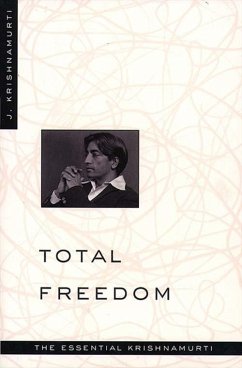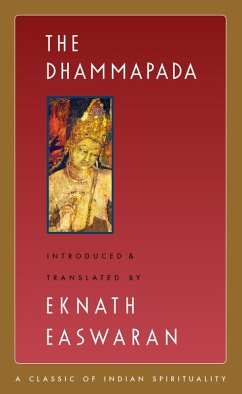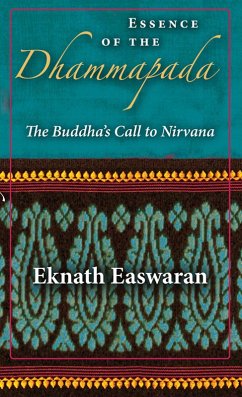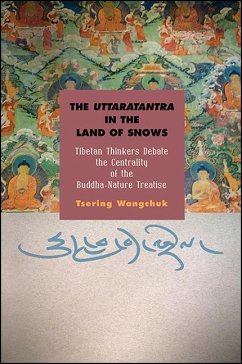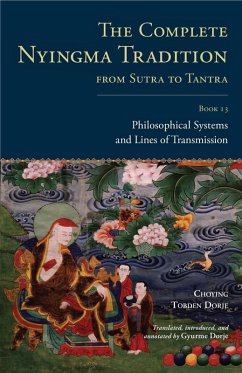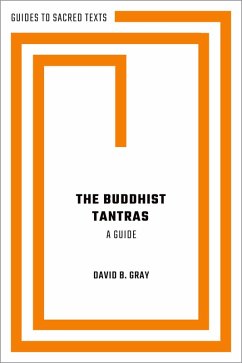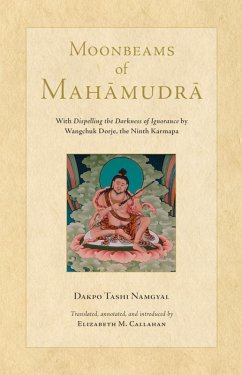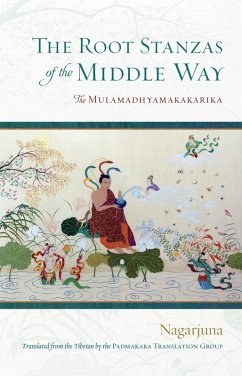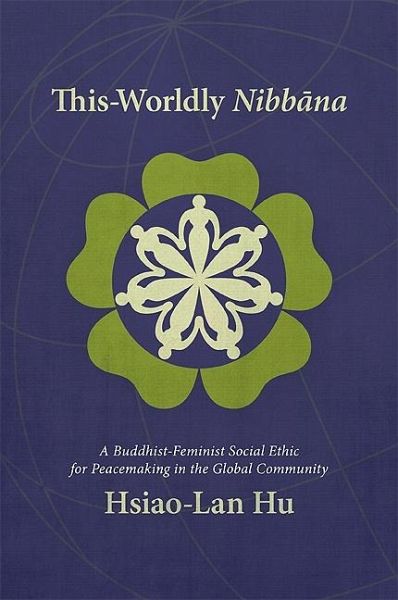
This-Worldly Nibbana (eBook, ePUB)
A Buddhist-Feminist Social Ethic for Peacemaking in the Global Community

PAYBACK Punkte
13 °P sammeln!
A Buddhist feminist social ethics for contemporary times.Offering a feminist analysis of foundational Buddhist texts, along with a Buddhist approach to social issues in a globalized world, Hsiao-Lan Hu revitalizes Buddhist social ethics for contemporary times. Hu's feminist exegesis references the Nikaya-s from the "Discourse Basket" of the Pali Canon. These texts, among the earliest in the Buddhist canon, are considered to contain the sayings of the Buddha and his disciples and are recognized by all Buddhist schools. At the heart of the ethics that emerges is the Buddhist notion of interdepen...
A Buddhist feminist social ethics for contemporary times.
Offering a feminist analysis of foundational Buddhist texts, along with a Buddhist approach to social issues in a globalized world, Hsiao-Lan Hu revitalizes Buddhist social ethics for contemporary times. Hu's feminist exegesis references the Nikaya-s from the "Discourse Basket" of the Pali Canon. These texts, among the earliest in the Buddhist canon, are considered to contain the sayings of the Buddha and his disciples and are recognized by all Buddhist schools. At the heart of the ethics that emerges is the Buddhist notion of interdependent co-arising, which addresses the sexism, classism, and frequent overemphasis on individual liberation, as opposed to communal well-being, for which Buddhism has been criticized. Hu notes the Buddha's challenge to social hierarchies during his life and compares the notion of "non-Self" to the poststructuralist feminist rejection of the autonomous subject, maintaining that neither dissolves moral responsibility or agency. Notions of kamma, nibbana, and dukkha (suffering) are discussed within the communal context offered by insights from interdependent co-arising and the Noble Eightfold Path. This work uniquely bridges the worlds of Buddhism, feminism, social ethics, and activism and will be of interest to scholars, students, and readers in all of these areas.
Offering a feminist analysis of foundational Buddhist texts, along with a Buddhist approach to social issues in a globalized world, Hsiao-Lan Hu revitalizes Buddhist social ethics for contemporary times. Hu's feminist exegesis references the Nikaya-s from the "Discourse Basket" of the Pali Canon. These texts, among the earliest in the Buddhist canon, are considered to contain the sayings of the Buddha and his disciples and are recognized by all Buddhist schools. At the heart of the ethics that emerges is the Buddhist notion of interdependent co-arising, which addresses the sexism, classism, and frequent overemphasis on individual liberation, as opposed to communal well-being, for which Buddhism has been criticized. Hu notes the Buddha's challenge to social hierarchies during his life and compares the notion of "non-Self" to the poststructuralist feminist rejection of the autonomous subject, maintaining that neither dissolves moral responsibility or agency. Notions of kamma, nibbana, and dukkha (suffering) are discussed within the communal context offered by insights from interdependent co-arising and the Noble Eightfold Path. This work uniquely bridges the worlds of Buddhism, feminism, social ethics, and activism and will be of interest to scholars, students, and readers in all of these areas.
Dieser Download kann aus rechtlichen Gründen nur mit Rechnungsadresse in A, D ausgeliefert werden.




